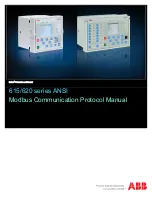
DM9000
ISA to Ethernet MAC Controller with Integrated 10/100 PHY
34
Final
Version: DM9000-DS-F02
June 26, 2002
9.6 100Base-TX Receiver
The 100Base-TX receiver contains several function
blocks that convert the scrambled 125Mb/s serial data
to synchronous 4-bit nibble data that is then provided
to the MII.
The receive section contains the following functional
blocks:
- Signal Detect
- Digital Adaptive Equalization
- MLT-3 to Binary Decoder
- Clock Recovery Module
- NRZI to NRZ Decoder
- Serial to Parallel
- Descrambler
- Code Group Alignment
- 4B5B Decoder
9.6.1 Signal Detect
The signal detect function meets the specifications
mandated by the ANSI XT12 TP-PMD 100Base-TX
standards for both voltage thresholds and timing
parameters.
9.6.2 Adaptive Equalization
When transmitting data over copper twisted pair cable
at high speed, attenuation based on frequency
becomes a concern. In high speed twisted pair
signaling, the frequency content of the transmitted
signal can vary greatly during normal operation based
on the randomness of the scrambled data stream.
This variation in signal attenuation, caused by
frequency variations, must be compensated for to
ensure the integrity of the received data. In order to
ensure quality transmission when employing MLT-3
encoding, the compensation must be able to adapt to
various cable lengths and cable types depending on
the installed environment. The selection of long cable
lengths for a given implementation requires significant
compensation, which will be over-killed in a situation
that includes shorter, less attenuating cable lengths.
Conversely, the selection of short or intermediate
cable lengths requiring less compensation will cause
serious under-compensation for longer length cables.
Therefore, the compensation or equalization must be
adaptive to ensure proper conditioning of the received
signal independent of the
cable length.
9.6.3 MLT-3 to NRZI Decoder
The DM9000 decodes the MLT-3 information from the
Digital Adaptive Equalizer into NRZI data. The
relationship between NRZI and MLT-3 data is shown
in figure 4.
9.6.4 Clock Recovery Module
The Clock Recovery Module accepts NRZI data from
the MLT-3 to NRZI decoder. The Clock Recovery
Module locks onto the data stream and extracts the
12 5M h z r e f e r e n c e c lo c k . T he ex tr ac t ed a n d
synchronized clock and data are presented to the
NRZI to NRZ decoder.
9.6.5 NRZI to NRZ
The transmit data stream is required to be NRZI
encoded for compatibility with the TP-PMD standard
for 100Base-TX transmission over Category-5
unshielded twisted pair cable. This conversion
process must be reversed on the receive end. The
NRZI to NRZ decoder, receives the NRZI data stream
from the Clock Recovery Module and converts it to a
NRZ data stream to be presented to the Serial to
Parallel conversion block.
9.6.6 Serial to Parallel
The Serial to Parallel Converter receives a serial
data stream from the NRZI to NRZ converter. It
converts the data stream to parallel data to be
presented to the descrambler.
9.6.7 Descrambler
Because of the scrambling process requires to control
the radiated emissions of transmit data streams, the
receiver must descramble the receive data streams.
The descrambler receives scrambled parallel data
streams from the Serial to Parallel converter, and it
descrambles the data streams, and presents the data
streams to the Code Group alignment block.
















































